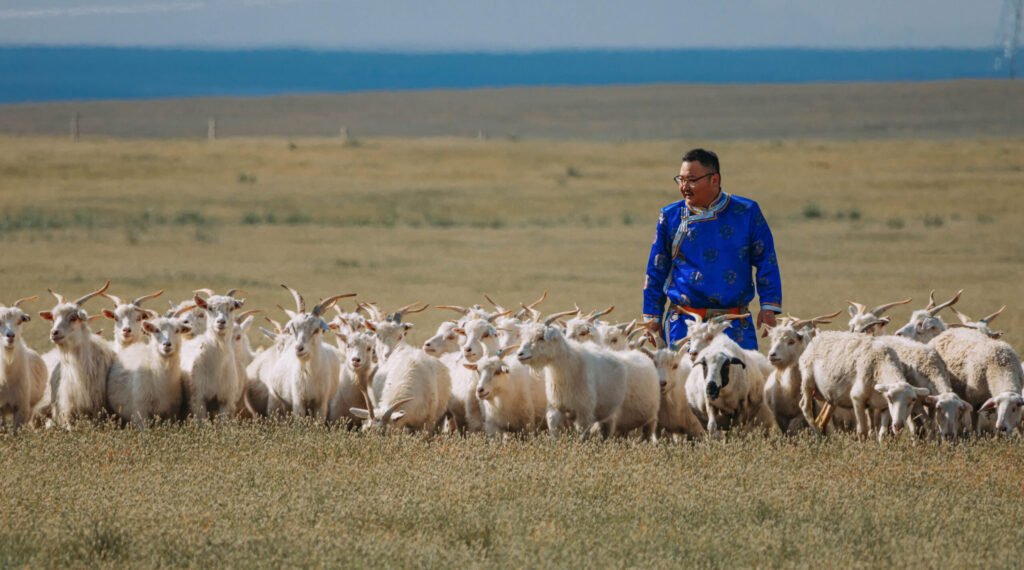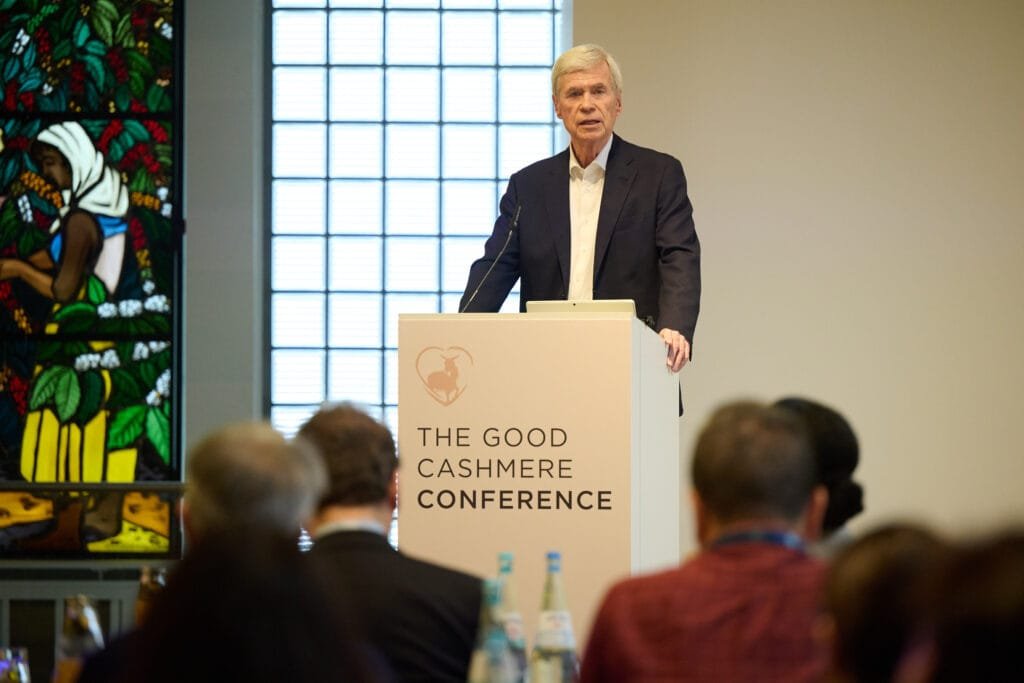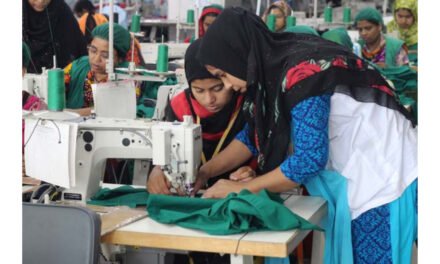
For two days, this year’s The Good Cashmere Conference in Hamburg brought together renowned experts from the global cashmere and textile industry, representatives of international non-governmental organizations, and scientists to discuss progress, challenges, and successes in sustainable cashmere production. The event in the Hanseatic city focused on how innovative technologies, efficient measures for animal welfare, biodiversity conservation, and transparency in the textile supply chain can shape the future of the sustainable cashmere industry.

Prof. Dr Michael Otto, Founder of the Aid by Trade Foundation and Honorary Chairman of the Supervisory Board of the Otto Group
According to the Founder of the Aid by Trade Foundation and Honorary Chairman of the Supervisory Board of the Otto Group, Prof. Dr Michael Otto, The Good Cashmere Standard© plays a significant role in transforming the cashmere industry: “Sustainability is a license to operate. The Good Cashmere Standard© is not merely a set of rules and criteria; it is a commitment to a better future for the cashmere industry. ” Accordingly, innovative technologies such as virtual reality, scientifically based measures implemented in collaboration with herders to protect animal welfare and biodiversity, as well as transparent supply chains, were the main themes of the conference.
Since 2019, The Good Cashmere Standard© has been advocating for sustainable cashmere production and transparent traceability in the supply chain – now as the largest standard with ongoing success in trade and production: More than 50 international fashion brands and companies, including H&M, Marc O’Polo, Boden, and The White Company, use GCS-verified cashmere fibers. From 2023 to 2024, the number of labeled textiles increased by 30%.
But how can the welfare of cashmere goats be promoted? What has GCS already achieved in this area? International animal welfare experts emphasized at the conference the fundamental importance of positive experiences within animal welfare concepts for a species-appropriate and economically successful goat husbandry. The Good Cashmere Standard© is recognized for its pioneering role and effective implementation on farms. The standard translates scientific findings into agricultural practice and employs training, digital solutions, and model farms as pioneers for responsible cashmere production. According to the latest GCS verification results, the core indicators of the standard as well as environmental requirements are met 100% – while social and animal welfare aspects already achieve fulfillment rates of over 90%.

Tina Stridde, Managing Director Aid by Trade Foundation
The sustainable production of GCS cashmere takes place in one of the world’s most fragile natural landscapes: the grasslands of Inner Mongolia in China. Preserving biodiversity was therefore another central point of the conference. How can the biological balance, as the livelihood of the now 5,500 GCS farms and two million cashmere goats, be protected from drought and other climate change-induced weather extremes? Scientists, NGOs like the Global Nature Fund, as well as brands like Marc O’Polo or producers from China agree: Protecting the grasslands in Inner Mongolia is essential for the future of cashmere production. Collaborations along the textile supply chain as well as modern grazing and knowledge management for herders are crucial for this.
How can the success story of sustainable GCS cashmere continue? Here, virtual reality goggles and blockchain technology for tracking GCS cashmere in the supply chain provide forward-looking answers. “The future of cashmere rests squarely on our collective ability to cultivate a truly sustainable legacy,” concludes Prof. Dr Michael Otto. Alex Barnett, Ethics & Sustainability Manager at The White Company, adds: “It was great to connect with experts in the field of responsible cashmere production at this year’s conference. From goat to garment, the conference combined animal welfare and environmental stewardship, transparency, and innovation, providing valuable insights into the future of cashmere production. As the first UK GCS brand partner, The White Company remains committed to responsible cashmere production, supporting the livelihoods of herders.”





















